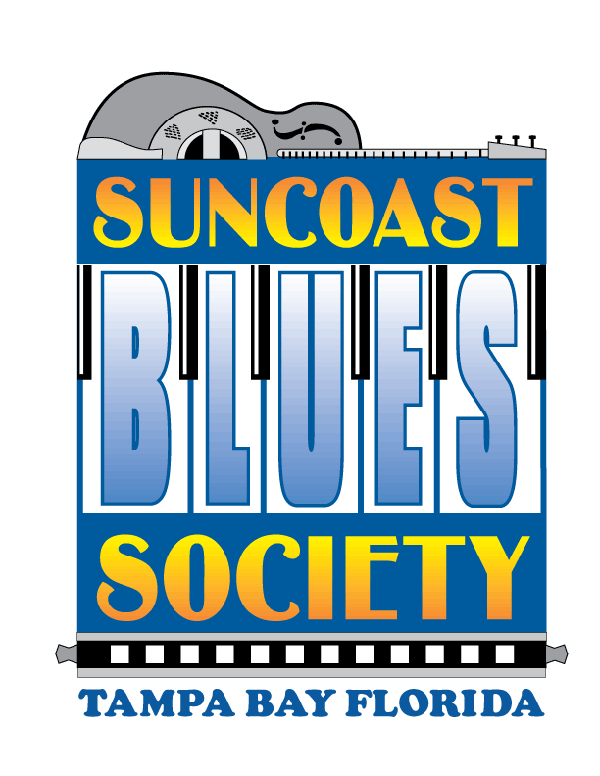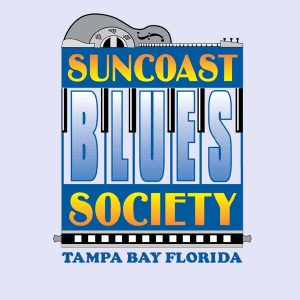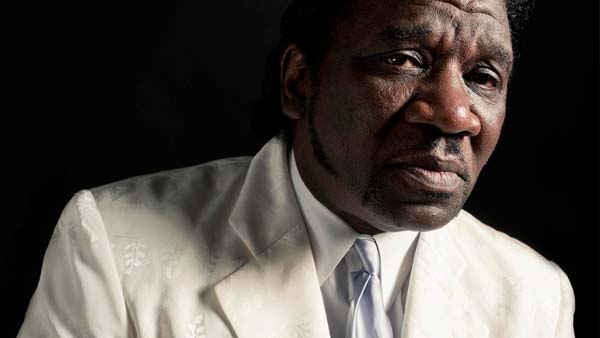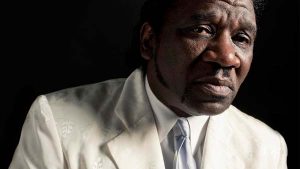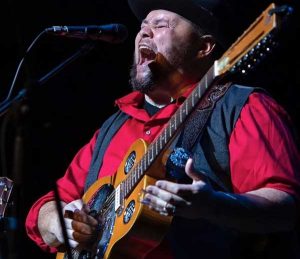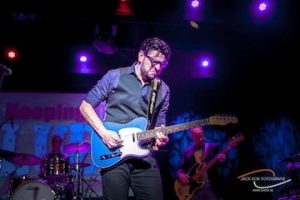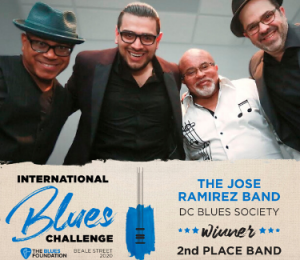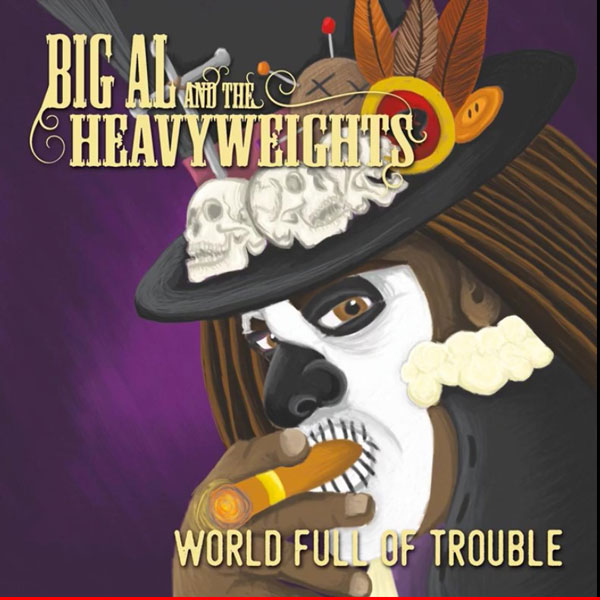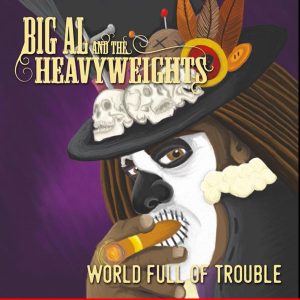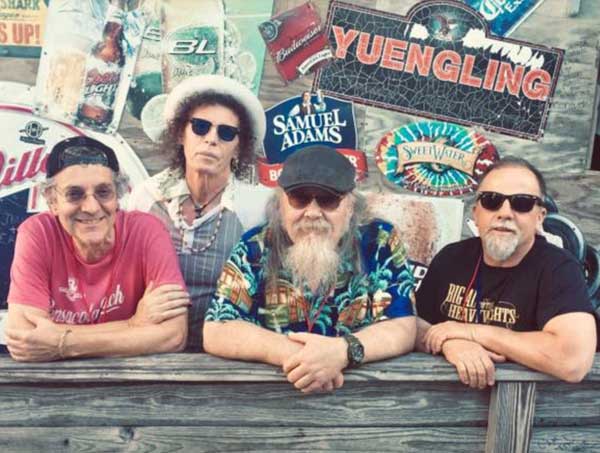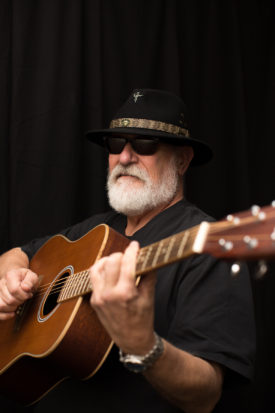
Interview: Mick Kolassa
Interview: Mick Kolassa
As with all of Mick’s albums, his generosity and love of the blues is exemplified by the fact that all proceeds from sales of his albums goes to help support the Blues Foundation’s HART fund, which helps blues artists and their families with medical and funeral expenses and Generation Blues, which helps fund young musicians under the age of 21 to attend blues music camps.
I recently caught up with Mick after he had been in Rockland, Maine, for the North Atlantic Blues Festival where he had been working with Midcoast Music Academy students for several days before they performed at the annual festival to ask him about his new release “I’m Just Getting Started.” As always, he proved to be a refreshing, dedicated warrior for the blues and a very talented artist.
BS: As you know, I attended an acoustic performance of yours recently at the Heartwood Soundstage in Gainesville, Florida, with local favorite Paco. You guys blew the audience away with your synergy and held the audience in the palm of your hand with the interaction and storytelling. How does playing in an intimate venue like Heartwood compare to a large festival or club for the type of music that you play? Do you have a preference?
MK: Two very different kinds of satisfaction! In a small and intimate setting like Heartwood I try to have an actual conversation with the audience members, spending time talking about each song, so I’m sure they understand not just the song but often why I wrote it or decided to sing it. That’s hard to do from a festival stage. In a smaller setting you can have direct conversations with people without losing the rest, not so on a large stage. But the satisfaction, or adrenaline rush, you get when a large audience likes what you do is different, not better, or worse, just different. I think most performers would agree that the act of performing is a powerful drug, the feeling you get when an audience likes what you do is hard to match. Whether the audience is small or huge, if I can make them happy it makes me even happier!
BS: Jeff Jensen produced and played guitar on your new release as well as previous ones. You guys seem to create magic together. How did that relationship come about?
MK: Of the 12 albums I’ve done so far, Jeff has produced 10 and played on all but 1, so we’ve become quite a team. I met Jeff when he was playing with Brandon Santini, they played at the Bluesberry Café in Clarksdale during the Juke Joint Festival. My brother-in-law and I were putting together a show in Spokane, where he lived, and thought that they would be a great addition to the show. During that show one of the other acts invited me to sit in with them and when Brandon and Jeff played, they also invited me up, so I did a couple tunes with them. After that they would bring me on stage when I was at one of their shows. I started doing some of my original songs with them and Jeff said I should think about recording them, and things just grew from there. The partnership has been good for both of us because we have very different musical backgrounds that work well together.
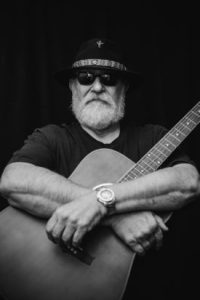
BS: You have been quoted as saying about your songs “I want to tell a story.” My favorite bluesmen tell a story with their songs. Lyrics and audience interaction play a huge role in that for the listener. At venues with loud guitars and loud talking audiences, is story telling possible. Do you adjust your set list accordingly?
MK: I can usually get the stories in, even in a large venue I will set up each song, giving a little background or history. It’s honestly more difficult to do that in a loud bar than it is on a large stage. I think that one thing that helps is that I spend a lot of time on stage looking at the audience, not just playing or singing to them. I try to make eye contact so that the individual people feel that I’m singing to them – because I am!
BS: On a personal note, we both have been impacted by great losses recently. Due to the pandemic, not only have the careers of our friends been impacted, but we both have lost spouses as well as numerous close friends. You also have relocated to Memphis after a lengthy residence in Mississippi. How are you coping with your loss? I certainly feel your pain but can’t express it like you can in your music.
MK: It’s a struggle, for sure, and even though I knew that Molli was dying, and I was prepared intellectually but I sure wasn’t ready emotionally. My family and friends helped me amazingly but being able to work through the pain and questions in my songs really helped. I’ve always done that – my songwriting is often me just thinking and putting the thoughts into words. Because I have standards and “rules” for my songs I’ll often get creative with the story I lay down, but it works for me. Coming to terms with Molli’s alcoholism turned into the song “Baby’s Got Another Lover,” which is still my most streamed and downloaded song – the song was my way of working through it and understanding it. I wrote the song “Nothing Left to Lose” as a way to try to understand Robin William’s suicide. Of course, the last couple years have given me a lot to write about.
But it isn’t just the bad things, I write happy songs and love songs, sometimes leaning back on my younger years when Molli and I first got together, but also writing to or about an imaginary muse who I can write about or to with very low risk.
BS: On a lighter note, your new release “I’m Just Getting Started” is a sure winner with me but you also indicate more are in the works. Can you tease us a bit by telling us what we can look forward to?
MK: Sure, In August I will release an acoustic album entitled “They Call Me Uncle Mick.” The only musical instrument that was plugged in was a vibraphone, which has an electric motor that rotates the baffles. It was wonderful knowing that there would be no pedals or effects. That album has some very old songs, one by Bo Carter and one by Hank Williams. I was joined by some amazing people on the album, Watermelon Slim played and sang with me on a bluesy version of Woodstock, Bobby Rush played harmonica on an acoustic version of my song Wasted Youth, Doug McLeod played on 2 of my originals, and I was also joined by Chris Gill, Brad Webb and Alice Hasan. The idea was to show the versatility of acoustic music.
That album will be followed by one I’m working on right now. Called “For The Feral Heart”, it’s a collection of love songs, some original, one very classic old standard and a couple well known rock songs that, when played slowly and a little mournful, are amazing paintings of love going off the tracks.
BS: With the price of gasoline, lodging, and in general all expenses increasing, are more musicians foregoing tours and streaming live shows? With club owners and fans all affected by inflation, how are you and fellow musicians coping?
MK: Right now, musicians are just trying to figure out what’s going on. While most of the festivals are back online many venues have closed and some have stopped booking touring acts, so routing a tour is tougher than ever before. As for streaming live shows, some have done it and a few with large and loyal fan bases have done OK, but it’s not the same as a live show. I know many musicians who haven’t jumped back in yet, making money some other way and trying to book tours for next year
BS: Can you tell us about Endless Blues Records in Memphis and how that came about and your role in it?
MK: Endless Blues Productions was the creation of my brother-in-law, Ted Todd, who passed away about 7 years ago. We put together several shows and were in the process of incorporating the business when he died. I decided to keep it going with the record label, starting with my own work, the album “149 Delta Avenue”. Once that was in place, I reached out to some friends to see if they would be interested in releasing their work on the label. Several said yes, in some cases they brought the finished product to me, and I helped them to release and promote the album and in other cases I financed it and sold the individual CDs to the artist. To date I have really held it to be with people I know well. We queued up four big releases, Tennessee Redemption, Tullie Brae, Eric Hughes, and Kern Pratt, just in time for Covid to shut things down and put the brakes on CD sales, the vast majority of which are sold at live shows. To top that off we lost Kern to Covid in 2020.
Since then, the album releases have been mine, Dexter Allen, and Chris Gill, and we have really had to manage that carefully. Fortunately, every release on the label has charted well and gained attention and some pretty good sales.
So far, my role has been to be pretty much every job. Anne Bello has come on board, initially to help with my own music but has expanded her work with all the artists on the label. Dexter Allen and Jeff Jensen are working with me to take things forward, and we have some cool projects in the works that could help us make up for 2020!
BS: You recently worked with young blues artists at the North Atlantic Blues Festival in Maine as you have in the past. Can you tell us about that experience?
MK: That was simply magic! When I played the North Atlantic Blues Festival in 2016 Paul Benjamin asked me if I’d like to spend a couple of hours with the students at the MidCoast Music Academy, where they have an intensive week-long blues camp to prepare the students to play a short set to open the second day of the festival. I was really impressed by the kids when they played. Last year I went back to the festival because I had a few people from the label playing, and Paul asked if I’d like to stop by the academy for a couple of hours again. While there I brought up the idea of spending all or most of the week with them this year and they thought that was a good idea. It was so fulfilling to work with these young musicians, some were experienced and others just starting but all were enthusiastic.
My main role was to supplement their training in music theory and some technical skills with educating them about the blues, the culture and history as well as the music, and to coach them as they worked though the songs. I hope to go back next year and do it again.
BS: I see that one of my favorite venues in your schedule for the fall is at “Camping With The Blues” in Brooksville, Florida. Any other appearances that fans should be alerted to?
MK: Camping With The Blues is a great event. I did it with my Taylor Made Blues Band in 2019 and loved it. I’ve been working with Dexter Allen to put some shows together so for Camping With The Blues Dexter’s band will back me up for my set (Dexter, who is an amazing blues artist, played bass and some guitar on my most recent album). Dexter will then do a set of his own great music later in the program. We will be playing together the week before at the Bradfordville Blues Club.
While we are looking for other opportunities, I’ll be doing some local shows in the Memphis area with different musicians and have a few solo shows and runs set up. I should be at Little Village in Pensacola in August, The Twisted Tail in Philadelphia, PA in late September, and a few other shows in that area. I’ll do a few shows in Clarksdale and plan to get to Michigan a couple times to do some shows. I’m still debating on whether to form a new band or not, we’ll just have to see what works out in that regard.
BS: You were on the Board of Directors of the Blues Foundation when they raised money for the Blues Hall of Fame, and you also have been an advocate for helping save the historic Riverside Hotel in Clarksdale. Can you update us on the status of that project? I know that a GoFundMe account raised some funds to help it reopen.
MK: The Riverside is a wonderful piece of American history and I urge people to check into it. The Ratliff family, which owns and runs the hotel, are dear people whom I’ve known for many years. When it looked like the hotel might not be able to keep going, because of Covid and some damage from an ice storm, several of us who love the place got together to start the GoFundMe campaign. Teeny Tucker and I wrote and recorded a song about the hotel, laying out the amazing history of the place and the need to keep it going.
The campaign has been successful but what really made the difference is that the National Park Service has awarded a very large grant to help us rebuild it and keep it going. We will still be raising money to preserve the place where Bessie Smith died and where Rock and Roll was born!
BS: A young “Kingfish” is certainly exciting to watch, as are David Julia, Ben Levin, Veronica Lewis and so many other talented young artists. Care to reflect on the future of the blues? Working with Generation Blues, you have a rare opportunity to see what talent the future holds.
MK: I’ve known Christone since he was about 8, and he simply amazed me from the beginning. I’ve also been a supporter of the Pinetop Perkins Foundation and their work with young artists, many of whom I’ve got to know over the years. That’s how I got to know David Julia and Cole and Logan Layman, each of whom have played on one of my albums, as well as Dylan Salter and Grace Kuch, and so many more. I love their enthusiasm for the music that I love, and their talent blows me away. I’ll keep doing whatever I can to support young musicians who want to play the blues.
BS: Thank you, Mick, for your sincere love, support, and dedication to the blues and your wicked sense of humor. You are an inspiration to me and to others and for that, I am grateful. Your support of the HART fund and Generation Blues during this rough economic period could not be more needed or appreciated. See you on the blues highway soon.
